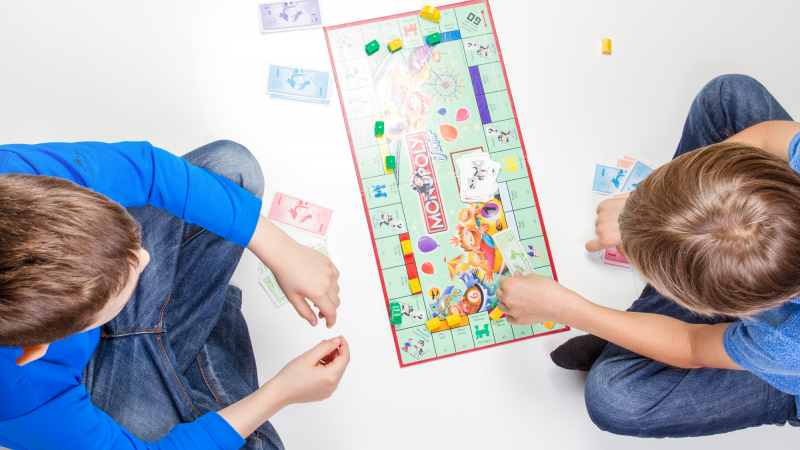Teaching Math through Play

Lately, my six-year-old daughter has been pushing back during math time. No surprise to me since her strengths lie in reading and history, but I do want her to succeed. Admittedly, at this point in the school year, I’m losing my momentum, too. At the beginning of the school year, I would stay up late pinning fun projects for math and science, making lists of materials and scheduling things out. Now, it’s February and I can barely stay awake long enough to write out the number patterns from the Saxon 1 lesson plans. (Some of you can relate, I’m sure.)
There are a variety of reasons a child will resist doing their school work and in most cases, it is not blatant defiance. It could be that they are overwhelmed. Is their schedule too full? Are you expecting too much of them? Maybe the curriculum is too difficult or the pace is too fast? On the other hand, they could be bored with the subject because it is not challenging enough. The beauty of homeschooling is that you can slow down or speed up when you need to.
Sometimes there is a reason to have them tested for a learning disorder like ADHD. (Talk to your Adviser if you are in the Diploma Program.) And sometimes it might have nothing to do with the subject itself, but with outside stressors. Did something happen in their personal life that might be affecting their schoolwork?
Once you determine where the root of the problem is, you can find ways to solve it. One solution I found works for my daughter with math, is playing games. She felt frustrated when she didn’t immediately succeed in a new skill in school, yet when I turned it into play, the mistakes were less stressful. They even helped her learn.
Some games are explicitly educational while others are common board games that require basic math skills. There are lots out there and I haven’t tried them all, but these are some of my favorites:
- Sum Swamp - This game is a simple addition/subtraction game. Just roll the two number dice and single function dice to determine how many steps your piece can take on the board. You will either find the sum or difference of the two numbers, depending on what you roll.
- Tangrams - My three year old loves tangrams but my six year old, not so much. Allowing her to make it playtime made her more confident to try experimenting with it. They even make travel tangrams that are magnetic.
- Monopoly - Not only does it teach kids how to count (and spend) money. It also teaches probability and percentages.
- Dominos - You can use Dominos a variety of ways depending on the skills your child is practicing. For example, students get five dominos, they can then find the sum, difference or product of the two sets of dots on the dominos and then put the dominos in order from least to greatest. Make it a race!
- Playing Cards - Pinterest has lots of ideas for how to use playing cards in math practice. One of my favorite ways is to play war. Each player sets out two cards at a time, then they must add, subtract, multiply, or divide the two numbers (whichever skill your child is currently working on). The player with the higher solution takes all four cards.
These are just a few ways to integrate games into math to teach math skills, but there are other benefits to using games in school. The games teach kids life skills in a safe environment like how to take turns, be respectful of each other, and cope with failure.
If you have any suggestions for math games to play, share it with us on our Facebook page!






